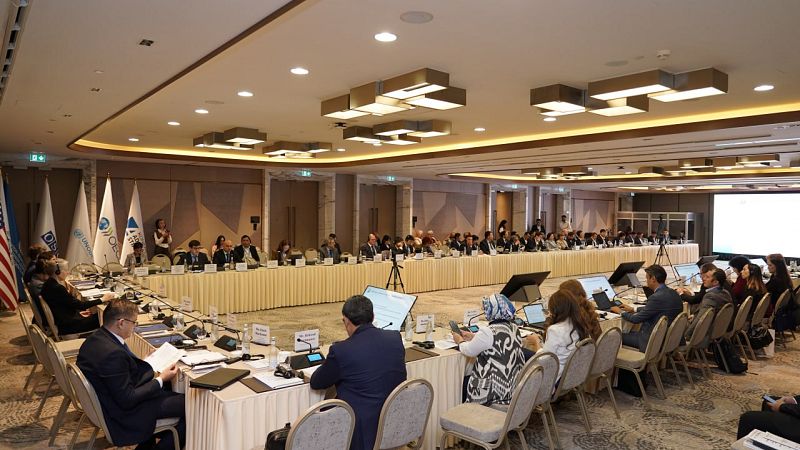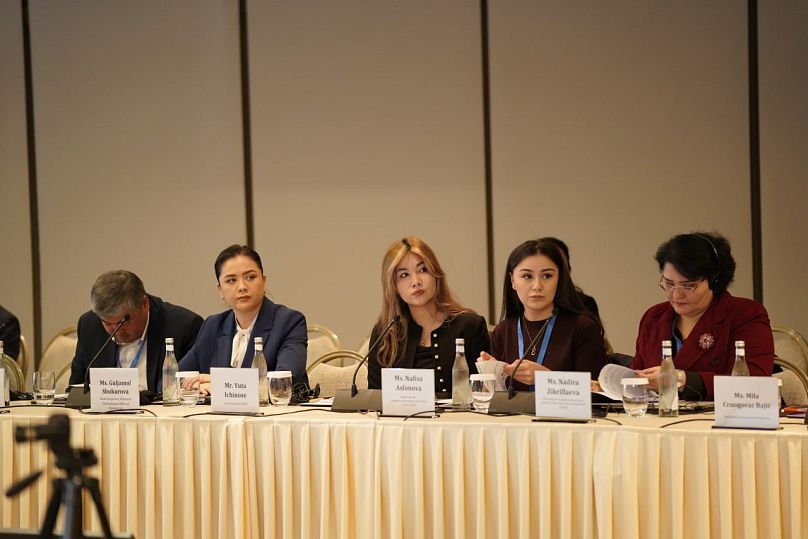International forum in Tashkent champions transparent business

Running a business in Uzbekistan has become easier in recent years, with new mechanisms designed to support entrepreneurs and cut bureaucracy.
One of the key players in this process is the Business Ombudsman – a state body established in 2017 to safeguard business interests and address administrative barriers.
The institution can investigate complaints, fine officials for violations, and represent entrepreneurs’ interests before government agencies or in court.
This week, it brought together regional and international partners for the International Forum of Business Ombudsmen and the Fourth Forum on Business Integrity in Tashkent – a meeting focused on how to make business rules clearer and more consistent across borders.
The event gathered more than 250 participants from ten countries, including representatives of the OECD, UN Office on Drugs and Crime and OSCE.
Uzbekistan’s evolving model of business protection
“Transparency and trust are the cornerstones of fair regulation,” says to Euronews Jamshid Urunov, Deputy Business Ombudsman of Uzbekistan. “Our main task is to protect the rights and legitimate interests of entrepreneurs and to ensure that their interaction with the state is built on openness and the rule of law.”
The institute handles appeals on taxation, land use, banking and licensing through its Virtual Office for Entrepreneurs – a 24-hour platform that allows businesses to file complaints and suggestions online.
Between January and 1 October 2025, the portal registered 6,903 appeals and 7,898 questions from entrepreneurs. Most submissions came through the Call Centre (5,077), followed by the business.gov.uz website (1,060) and mobile field receptions (766). Not all complaints involve violations: many concern advice, documentation or help in resolving day-to-day issues faced by small and medium enterprises.
During the first nine months of the year, 67 administrative reports were filed against officials for mishandling cases, and four official submissions were sent to agencies to address missed deadlines. The Office also helped entrepreneurs secure around €1.1 million in loans, recover €720,000 in financial claims, and obtain refunds of €350,000 in overpaid taxes.
“We work to eliminate the causes of those complaints,” Urunov explains. “That’s why we hold regular dialogue with business representatives about legislative gaps and barriers. We also promote ethics and corporate responsibility, for example through the Anti-Corruption Business Charter, which has already united hundreds of entrepreneurs committed to integrity.”
Uzbekistan’s model combines legal protection, digital monitoring systems such as the Unified State Control platform, which logs all inspections to prevent unauthorized checks and training on business ethics.
As Mila Crnorač Bajić, President of the Ethics and Compliance Committee of AmCham Bosnia and Herzegovina, told Euronews, Bosnia does not yet have a business ombudsman institution. “Uzbekistan’s system stands out because it can act quickly,” she said. “It can issue fines directly and intervene without waiting for a court ruling. That is something we want to study when developing our own model.”
Regional collaboration for shared standards
Delegates from neighbouring countries also shared their experience. Iylmaz Safaraul, Advisor to the Business Ombudsman in Kazakhstan, said that Central Asia’s ombudsmen are building regional cooperation on investment protection.
“Our office has reviewed hundreds of appeals in recent years,” he said. “The mechanism helps both to protect entrepreneurs and to improve the investment climate.”
From Azerbaijan, Sevda Husainova, compliance manager at SOCAR Midstream Gas Operations, described how corporate compliance programmes are expanding in the private sector. “At SOCAR, we’ve introduced corruption and sanctions screening, third-party risk assessments and integrity audits,” she said. “Such systems are now becoming common practice among large companies in Azerbaijan.”
Global partners and a shared governance agenda
International partners say that Central Asia’s efforts on business integrity reflect wider governance reforms. Antti Karttunen, OSCE Representative in Uzbekistan, noted that building integrity and reducing administrative barriers remain the main conditions for a competitive economy.
From the United Nations Development Programme, Akiko Fujii, UNDP Representative in Uzbekistan, pointed to the remaining challenges: “Uzbekistan has made progress in digitalizing public services and increasing accountability, but more needs to be done to strengthen anti-corruption systems and justice mechanisms,” she said.
Business integrity in practice
The term business integrity refers to the ethical and transparent conduct of companies – compliance with the law, responsible behaviour, and openness in relations with government and society. Forum participants said that measures such as transparent inspections, digital reporting and voluntary charters already help reduce administrative pressure on entrepreneurs.
In Uzbekistan, these tools are making business regulation clearer and procedures more predictable. Discussions focused on how digital platforms can cut unnecessary inspections, how legislation can reduce uncertainty, and how entrepreneurs can rely on straightforward rules when working with state authorities.
Today


